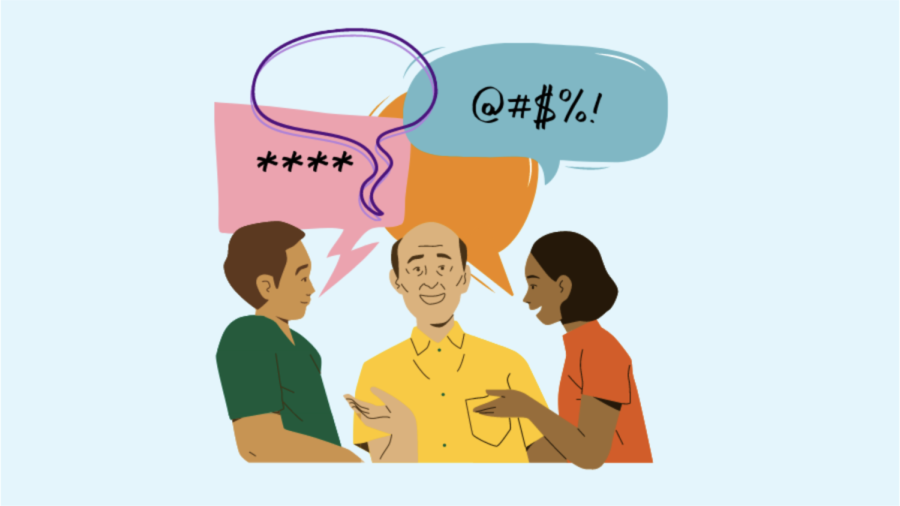Is Profanity Becoming Part of Our Vocabulary?
Use of profanity is becoming a regular part of conversations, degrading its prior shock-factor.
April 7, 2022
If you walk down a hallway of our school between any given classes, I can guarantee you’ll hear at least one swear word amidst the chatter. Keywords: at least. But cursing’s prevalence extends past school hallways. Profanity repeatedly comes up in songs, movies, and day-to-day conversations. Even children are using swear words nowadays, no matter if they know what they mean or not.
Go back a few decades or so in time and you’ll notice that curse words weren’t casually thrown into conversations like they are today. In fact, curse words were considered vulgar and extremely unacceptable to use. Today, swearing is used in conversation in many situations, some of which have reasonings backed by science.
One of the most common reasons why people swear is to let off steam. In western culture, if a person, especially a male, lets out their emotions through crying, they’ve been thought of as weak. Obviously, this isn’t true, but it’s become so ingrained into people’s thinking that it’s practically a stereotype. Scientifically, the left hemisphere of your brain is in charge of language and logic while the right side is responsible for emotions; however, many studies suggest that your brain processes swearing on its right side. For these reasons, it’s believed that swearing acts as an outlet for the pent-up emotions that people are afraid of expressing differently.
Another reason why people swear is to release their physical pain. Many people, even those who try to avoid cursing, can admit to having let out one or two curse words after stubbing their toe. Turns out, research shows that swearing in painful situations increases your heart rate and pain tolerance. One study testing how long people could hold their hands in icy water showed that those who cursed could hold their hands in the freezing water 50% longer than those who didn’t.
But, in today’s culture, swearing has extended beyond acting as a pain outlet and has become more of a social norm. The combination of people constantly being exposed to profanity and using it themselves has caused profanity to become a part of a majority of people’s vocabulary. Swearing is used for humorous purposes, to display in-group solidarity, to express one’s attitude, and the list goes on.
So, while you may walk off without any intentions of changing your behavior, I suggest you at least try to restrain profanity usage because, pretty soon, your attempt at insulting someone with a curse word most likely won’t have as big of an impact as you’d hoped for.



























